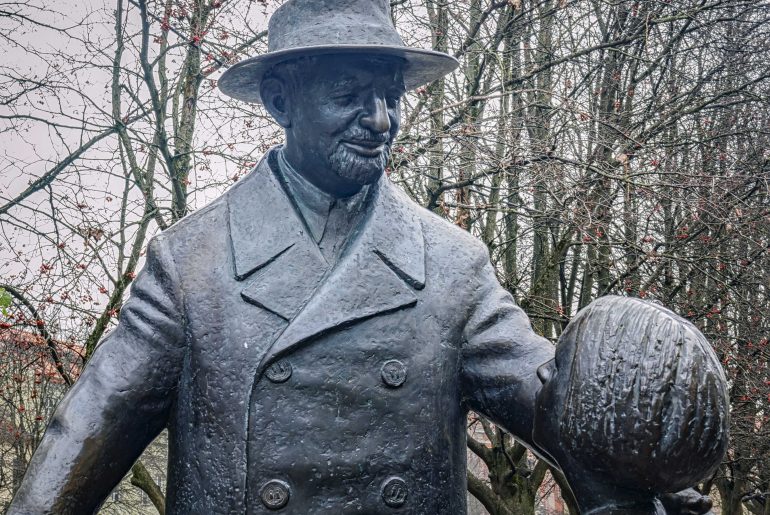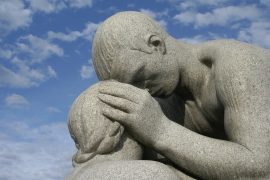We are within Sixteen Days of Activism, and the stories of abuse are horrendous. One in five adult South African women have experienced violence. Thank goodness that we have these drives because they make a statement of societal norms: domestic violence is never okay. They also raise awareness of the help that is available to the victims of violence.
We have just had the worldwide social media campaign of #metoo. It was very important. Women found support to speak out. Some very prominent abusers were finally called to task. The #metoo stories made my skin crawl. It made me realise how the only way to keep our daughters safer is to raise them strong. To affirm their boundaries, like Girl Guides who have launched a “don’t force kids to hug relatives” campaign. To teach them a few street smarts, like how to catch an Uber and never leave your drink unattended in public places.
At least three-quarters of the women in my practice have a horrible story of being hurt sometime in their lives. Of course, the women in my practice are struggling with something. They come to me because they are depressed or anxious or confused.
I most certainly have abusers in my practice. They often have other problems too, like substance abuse or narcissistic personality disorder.
Considering all of this, one might be justified to think of men as libidinous brutes constantly on the verge of violence. But we must remember that these sort of men are by far the minority. A lot of pain and suffering is caused by a small percentage of men, and these men are repeat offenders. They don’t only knock their wives around; they also bash their kids. The molesting uncle preyed on all of his nieces and nephews.
Some of the men in my practice are real heroes. Like the new dad whose wife had profound postnatal depression. He worked all day and dealt with a colicky baby all night, and was kind and gentle to his erratic and emotional wife. In all the months before things settled, he never once complained.
Another man grew up in a deeply patriarchal home. His self-worth took a huge knock when a work contract was not renewed. They had two small children; it was a stressful time. Fortunately, his wife’s career was on a rapidly escalating path. He applied himself wholeheartedly to be a stay at home dad. He went to clamber club and knew all the words to “the more we are together, the better we swim.” It was hard for him; his mates made jokes, his dad sniggered. He felt on the outside of mom’s groups. But it was what his family needed, and he stepped up 100%.
I have dads in my practice who work 16 hour days to ensure that their families are well provided for. Men who are endlessly supportive of their wives’ quests for self-discovery and the costs and time investments accompanying that.
I am blessed to have several #goodmen in my life. My father-in-law, through his gentle and constant ministrations, can make anything grow whether it be plant, animal or child. My husband’s moral compass points to true north. He is kind and has the unique ability to see things for what they are. My son has a fierce sense of justice and fairness. If he continues to grow his noble heart, the world will surely be better off for it.
What #goodmen stories do you have? Please share









2 Comments
I have a few good men stories but what concerns me here is that little attention is given to boys and men who suffer abuse at the hands of both men and woman. From a young age boys are taught that big boys don’t cry and to to take it like a man, even if that means being beaten or sodomised by an adult. And those are just two types of abuse. The Domestic violence act of 1998 which I had to resort to get a restraining order against my neurologically compromised alcoholic girlfriend defines domestic violence as:
(a) physical abuse;
(b) sexual abuse;
(c) emotional, verbal and psychological abuse;
(d) economic abuse;
(e) intimidation
(f) harassment;
(g) stalking;
(h) damage to property;
(i) entry into the complainant’s residence without consent, where the parties do not share the same residence; or
(j) any other controlling or abusive behaviour towards a complainant,
where such conduct harms, or may cause imminent harm to, the safety, health or wellbeing of the complainant.
And one more that Prof. Richard Dawkins is trying to get legislated in the U.K., namely
Religious abuse (e.g. telling a 5 year old boy that he is going to burn in hell for eternity for failing to believe a certain doctrine, will become a criminalisable offence.)
I together with my good male friends have collectively been on the receiving end of every one of the above forms of abuse but you would never know because we don’t talk about and we certainly don’t cry about it (only on the inside.)
You raise a very good point, David. Men and boys are also victims of abuse. And if women struggle to speak out, men find it even more difficult. Thank you for sharing.